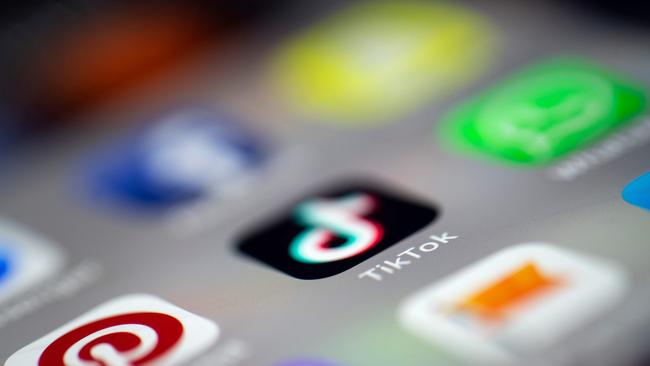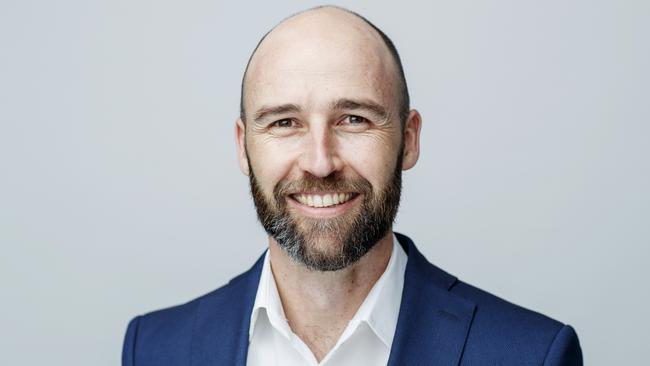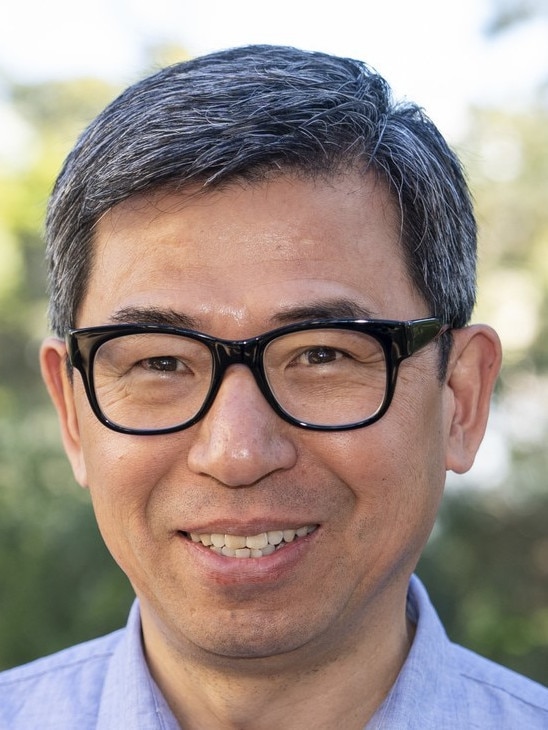Could politicians use TikTok to get 2022 federal election votes?
Political parties traditionally popular with older voters are trying to woo a Gen Z audience — and secure their vote in the process.

On social media platform TikTok, it’s not Scott Morrison wishing Australians a happy Easter, or Anthony Albanese promising to strengthen the nation’s Medicare system, but senator Jacquie Lambie dancing on a desk that has won the room.
The self-described “Tasmanian larrikin” has less than a third of Labor’s 71,500-strong following, but her video, where she announces that taking ownership of your actions is called being “a bloody adult”, has more than 10 times the amount of likes of the Easter and Medicare videos combined.
Senator Lambie’s video is a good example of what works well on the Chinese-owned platform, and experts say the Prime Minister and Opposition Leader could do well to follow in her footsteps.
In this year’s election, TikTok has emerged as the new campaign frontier, where political parties that are traditionally popular with older voters are trying to increase their exposure to first-time, Gen Z voters, and secure their vote while they are at it.
The platform knows this, and has been working to become election ready for the past year, says TikTok ANZ director of public policy Brent Thomas.
Part of its election efforts have included working closely with the Australian Electoral Commission’s misinformation hub, contracting the fact-checking services of AAP, and political training for content moderators. TikTok also wrote to every major party last year with a guide on what they could and could not publish.
“TikTok’s election guide reflects our efforts to protect the integrity of our platform, and the Australian federal election,” Mr Thomas said.
“We know TikTok is a home where Australians express themselves and, with that in mind, we’re focused on supporting our users with education and authoritative information on important public issues.”
The Australian numbers
There are about 7 million Australian users on TikTok who now spend about 17 hours a month on the app, according to a We Are Social report. The app has reportedly almost tripled its number of users in the 16-64 age group, increasing from 9 per cent in 2019 to 23.6 per cent in 2020.
Aside from Mr Morrison (59,400 followers), Senator Lambie (21,500 followers) and the ALP (74,100 followers); One Nation’s Pauline Hanson (7872 followers), Labor MP Julian Hill (147,600 followers), Labor’s NSW legislative councillor Rose Jackson (24,700 followers) and federal MP Bob Katter (16,100 followers) are also popular on the platform.
Asked if a particular politician was doing well on TikTok, Edith Cowan University computing and security adjunct lecturer James Kang put forward Senator Lambie.
Dr Kang, who is also an engineer at NBN Co, said Senator Lambie understood the tone of the app, and her sense of humour was well placed.
“Lambie has shot to fame making TikToks while dressing up and dancing on the desk in her office,” he said. “One video alone earned the outspoken senator more than half a million views and 15,000 new followers.”

Policing TikTok politicians
When it comes to videos published by politicians, authenticity means a little stamp of approval.
AEC digital engagement director Evan Ekin-Smyth confirmed it had received a “fairly significant volume of enquiries and complaints” regarding electoral communication this year.
“The vast majority of complaints relate to the required authorisation of political messages – and a number of these complaints are highly technical in nature rather than focusing on the intent of the law (that people know who is communicating with them),” Mr Ekin-Smyth said.
Politicians are now required to sign off on each video with who authorised it to be published.
Another difference to other platforms is TikTok’s strict “no political advertisement” policy. With the exception of followers who actively follow politicians, gaining exposure to others is limited to their success on the app.
While TikTok does not give specific details on its own moderator team, The Australian has confirmed that there substantially more than a couple of hundred workers who assess content on the app.
The TikTok strategy
While TikTok acknowledges its platform is central to the federal election this year, the company believes any influence is limited to a user’s feed, otherwise known as a ‘For You’ page.
Its algorithm, which is known to rapidly and accurately determine a user’s interests, will only display political videos if a user has engaged with similar content or the user follows political accounts. This can be particularly problematic for politicians, says University of Sydney digital cultures lecturer Joanne Gray.
“One of the things about TikTok is you don’t choose whose videos or content you see. For example, I had to go and find Scott Morrison’s page as well as other politicians on TikTok,” Dr Gray said.
“This is a bit of a problem for politicians who use the platform as they have to rely on their content being picked up by the recommendation systems which requires the content to be engaging in some way to go viral.”


Dr Gray is less optimistic about the success of Australian politicians on TikTok than Dr Kang.
“The algorithm analyses and looks for user engagement. It’s very difficult for a politician to gain traction under that platform logic. I don’t know if anyone is particularly doing it quite well,” Dr Gray said. “The real limitation is the platform itself.”
Dr Kang said TikTok was the ideal platform to reach younger voters.
“I think that TikTok is a great tool to reach and communicate with voters particularly with young generations who are using Instagram too,” he said. “TikTok is more popular with young people compared to Facebook, and this can help politicians to adjust their target groups to deliver their message.”
The TikTok benefit
The real advantage of the platform is if politicians can evoke an emotional response among from those who watch their content.
“I think it’s obvious that politicians and their teams understand how important TikTok is in our social and cultural ecosystem,” Dr Gray said.
“I don’t know that the TikTok platform allows politicians to connect with individual voters. However, where it can have an impact is sentiment towards policies and people,” Ms Gray said.
Dr Kang believes that evoking emotion among users can lead to political loyalty, especially among less politically-focused voters.
Politicians can, on TikTok, engage a user without giving their stance on a particular issue.
“It can be short, funny and laughable without knowing the politician’s stance of policy as it touches basic emotions without being serious. Eventually all voters may not be much political and thus easily influenced by what they see and hear,” Dr Kang said.
Some of this strategy can be seen in the likes of Mr Morrison’s most popular videos, which with the help of dog Bud or koalas have gained more than 30,000 likes.
For the ALP, its most popular videos often ridicule Mr Morrison and other parties. One video of senator Penny Wong telling off senator Blake Small earned 60,000 likes.
Mr Thomas said that TikTok content creators would also benefit from uploading expressive content rather than news or political messages.
“Of course, TikTok isn’t the go-to app for breaking news or politics, and we don’t accept paid political ads on our app. Our goal is to keep TikTok a place where authentic content can thrive,” he said.
Electoral misinformation
Mr Thomas said that TikTok would not hesitate to intervene if a political party or politician did not comply with its guidelines.
“TikTok will intervene to restrict the spread of misleading posts, using prompts when a user attempts to share a video, with a warning reminding them that the content has been flagged as unverified,” he said.
“We will remove misinformation that causes significant harm to individuals, our community, or the larger public regardless of intent, including content that misleads community members about elections or other civic processes. And more broadly, we continue to work diligently to uphold our community guidelines, removing content that is in breach of our policies.
“In addition to our work with the AEC on the Election Guide, TikTok has also established a dedicated reporting channel for the AEC to flag content they believe may be in breach of any local electoral laws or our Community Guidelines.”
Banners now appear across the bottom of political videos which lead to an in-app page co-designed with the AEC.
In the lead-up to the election campaign, a similar button prompting users to sign up to vote also appeared.
Mr Ekin-Smyth said some of the most common reports the AEC received were surrounding video authorisation.
“We often receive complaints relating to authorisations when it is a sign that has a candidate’s image, name and party affiliation on it, clearly meeting the law’s intent,” he said.
“In a number of instances we have reached out to people behind communication to remind them to adhere to the technical requirements of authorisations laws and our experience is that the vast majority of communicators have inadvertently not done so, and rectify it swiftly.
“When it comes to authorisations we receive information about a range of communication channels including videos on TikTok. We’ve talked to individuals and platforms in an effort to have authorisations applied or material removed.
“We’re liaising closely with TikTok and greatly appreciate their collaboration in driving participation in the election process, and on measures designed to preserve election integrity,” he said. “We’re excited by TikTok’s Election Guide and its potential to be an important resource for the platform’s community.”
Dr Gray said authorisation helped “to ensure people aren’t falsely representing politicians”.
Post-election analysis
While TikTok’s place in the election has been a hot topic mid-campaign, industry says it is waiting to analyse the platform and social media’s role more broadly when the campaign has ended.
Dr Kang added it was important to note “that TikTok has been a controversial platform for security and privacy issues for the last few years”, especially during the Ukraine conflict.
Dr Gray agreed. “I think where well see focus on the platform will be as particular controversies arise,” she said.
“We’ll then be able to look back at see what kind role TikTok and social media had perpetuating those controversies … so far TikTok has played a smaller role in the election than political parties would have hoped.
To report political misinformation on TikTok, long hold a video, select report, select misleading information, select election, read through the prohibited guidelines and then submit.


To join the conversation, please log in. Don't have an account? Register
Join the conversation, you are commenting as Logout